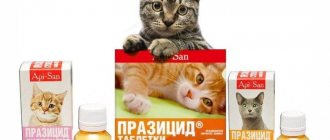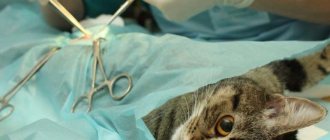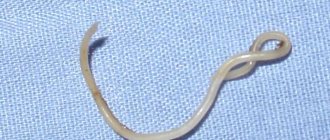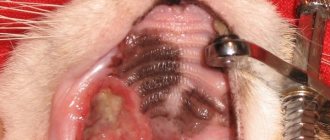What viral infections can be treated with antiviral drugs in cats?
Unfortunately, the range of antiviral drugs is not as wide as antibiotics. Antiviral drugs are available to treat the following infections:
- FVR-1 (feline herpes virus)
- FeLV (feline leukemia)
- FIV (feline immunodeficiency virus)
- FIP (feline infectious peritonitis)
- FCV (feline calicivirus)
The herpes virus, FIV and FeLV stay with the cat for life. After the initial infection, the feline herpes virus lies dormant in nerve cells, where it remains hidden but can be reactivated during times of stress. Antiviral drugs suppress viral replication while the cat's immune system mounts a response.
The goal of antiviral drugs for FIV and FeLV is to keep viral replication to a minimum.
FIP is a fatal viral infection, but treatment can prolong survival time.
For widespread infections
Rhinotracheitis and calcevirosis are classified as dangerous because they can cause death. The mortality rate among all domestic cats is about 20%. Veterinary experts use Fosprenil, Maxidin or Gamapren.
Fosprenil
Fosprenil is available in solutions. It is an anti-inflammatory and immunomodulatory drug. Its goal is to activate all the patient’s defense mechanisms and direct forces to fight the infection. Fosprenil is prescribed to almost all domestic and farm animals. Contraindications include individual intolerance to one or more components.
Maksidin also belongs to immunomodulators. Its principle of action is similar to Fosprenil: it also stimulates the immune system to resist foreign microorganisms. The dosage of the solution is as follows: 1 ml per 10 kg of pet’s weight. Up to 5 kg - 0.5 ml. However, Maxidin is also produced in the form of drops.
Gamapren is a modern domestic medicine. Used for rhinotracheitis, as well as calcevirosis and herpes virus infection. It does not allow pests to spread and conduct their “violent activity”. It also strengthens the immune system and increases resistance to various types of infections.
It is important! The advantages of Gamapren include the absence of contraindications for pregnant females and kittens. It is suitable as a prophylactic agent.
Antiviral drugs
Trifluridine
Trifluridine inhibits DNA polymerase and thymidine synthetase and is the most active agent against feline herpes virus. This is a topical medication that is applied to the eyes 5-6 times a day.
Brands: Viroptic Treats: feline herpesvirus What the drug comes in: Ophthalmic (eye) ointment
Ganciclovir
Ganciclovir triphosphate is a competitive inhibitor of deoxyguanosine triphosphate (dGTP) incorporation into DNA and preferentially inhibits viral DNA polymerases to a greater extent than cellular DNA polymerases.
Brands: Cytovene Treats: feline herpesvirus What the drug comes in: ointment for external use
Famciclovir
Famciclovir is converted to penciclovir, which is then converted to penciclovir triphosphate. Penciclovir triphosphate inhibits DNA polymerase and selectively inhibits viral DNA replication. Famciclovir is used to treat conjunctivitis associated with feline herpes virus.
Brands: Famvir Treats: feline herpesvirus What the drug comes in: Tablets for oral administration
Idoxuridine
Idoxuridine, which is very similar to thymidine, inhibits thymidylate phosphorylase and specific DNA polymerases that are required for the incorporation of thymidine into viral DNA. It is used to treat corneal ulcers and conjunctivitis associated with feline herpesvirus.
Brand names: generic, Herplex Treats: feline herpesvirus What the drug comes in: Ophthalmic (eye) ointment
Zidovudine (AZT)
A thymidine analogue, zidovudine selectively inhibits Thebes reverse transcriptase, which is the enzyme used by the virus to make a DNA copy of its RNA. By suppressing reproduction, the viral load decreases.
Brand name: Retrovir Treatment: Feline immunodeficiency virus and feline leukemia virus What the drug is supplied in: Tablets and injections
Vidarabin
Vidarabine inhibits DNA polymerase and viral replication by being incorporated into viral DNA. It is used to treat conjunctivitis and corneal diseases associated with feline herpesvirus infection.
Brands: Vira-A Treats: feline herpesvirus What the drug is supplied in: Ophthalmic (eye) ointment
Interferon
Interferon is a naturally occurring protein produced by cells of the immune system in response to certain viral infections. They do not kill the virus, but bind to infected cells as well as neighboring uninfected cells, which stimulates them to produce proteins that prevent the virus from replicating.
Brands: Interkat, Roferon, Intron A, Virbagen Omega Treats: feline herpes virus, feline calicivirus, feline immunodeficiency virus, feline leukemia virus and feline infectious peritonitis. What the drug comes in: Injection and oral liquid
Treatment of gastrointestinal pathologies
For the treatment of diseases associated with problems of the gastrointestinal tract, Forvet, a broad-spectrum antiviral drug for cats, is often prescribed. The medicine is available in the format of a sterile solution, which is used for injection. The medication has low toxicity, so it is often prescribed to weakened pets and young animals.
The main active ingredient is panavir. The component is produced from the shoots of Solanum tuberosum and is an extract of a polysaccharide complex, which contains the following components:
- rhamnose;
- xylose;
- arabinose;
- glucose;
- mannose;
- galactose;
- organic acids.
The drug also has auxiliary components: water for injection and sodium chloride.
The drug "Forvet" stimulates the synthesis of the animal's own interferon, which successfully fights microorganisms. In addition, the action of the drug is based on inhibiting the attachment of viruses to the affected cells, which leads to a decrease in their pathogenic effects and a speedy recovery.
Prevention
Although there are less effective antiviral drugs than antibiotics that treat bacterial infections, there are several vaccinations available to prevent viral infections.
- F3: feline herpesvirus, feline calicivirus and feline panleukopenia.
- Feline leukemia
- Feline immunodeficiency virus
- Feline infectious peritonitis
- Rabies
F3 is the basic vaccination that ALL cats should receive. Your veterinarian may recommend additional vaccinations, which will vary depending on local regulations as well as risk factors.
Cycloferon
An ideal antiviral drug for a cat suffering from rhinotracheitis, panleukopenia, calcivirosis, chlamydia and other viral diseases. Cycloferon belongs to the group of low-molecular inducers of a-interferon, which significantly increases the resistance of the cat’s body. Its advantages are :
- mild immunomodulating effect;
- promotes rapid regeneration of damaged tissues and mucous membranes;
- normalizes metabolic processes;
- has low toxicity - the antiviral drug is eliminated from the cat’s body on the very first day;
- enhances the effect of other immune drugs, antibiotics and interferons.
© shutterstock
What other treatments are there for viral infections?
In most cases, supportive care is provided while the cat's immune system mounts a response to the infection. This will include fluid therapy to prevent or treat dehydration, nutritional support, and medications to relieve symptoms.
Antibiotics are ineffective against viral infections, but they are sometimes prescribed to treat or prevent secondary bacterial infections that may develop.
Because FIV and FeLV affect a cat's immune system, pet owners should take steps to prevent opportunistic infections with regular health checks, careful parasite control, avoiding stress, and keeping cats indoors. Your veterinarian may be able to tailor the vaccination schedule for an immunocompromised cat.
Need for application
Antiviral drugs for cats have found their wide use in the treatment of viral-bacterial pathologies of a respiratory nature, as well as in the treatment of:
- gastrointestinal diseases;
- urinary system infections;
- eye diseases;
- skin problems;
- damage to soft tissues.
This group of drugs often has a wide range of effects, so they can be used in combination for the following problems;
- infection with worms;
- allergic manifestations;
- cold symptoms;
- for chronic liver and kidney failure.
Many veterinarians prescribe antiviral drugs for cats (injections) after surgery to avoid complications caused by the active reproduction of pathogenic microorganisms.
Antiviral for FIV
If a cat is diagnosed with this, then only a veterinarian can accurately prescribe treatment and calculate the dosage. It is worth understanding that the virus itself generally does not manifest itself in any way. It is always necessary to treat the underlying disease. The main medications are the following:
- Azidotivudine. Effective if the cat has stomatitis or neurological disorders are recorded.
- "Didanosine." Used for disorders of the nervous system. It has pronounced side effects.
- "Interferon". Used in high doses. Does not have a strong effect on infected cats, but may be useful for some diseases.
- "Zidovudine." Designed for humans, but can be used on pets.
Of course, none of the proposed medications will cure the cat completely, but with well-designed therapy it will help it remain cheerful and active for a long time.
Composition, principle of action and release forms
The active component of the drug is acridoneacetic acid, a synthetic analogue of the alkaloid from Citrus grandis. This substance can activate the production of interferon in the animal’s body and stimulate the functioning of the bone marrow. Interferon is a protein whose action is aimed at destroying a viral infection. Auxiliary components of the drug:
- methylcellulose;
- povidone;
- calcium stearate;
- benzalkonium chloride;
- methacrylic acid;
- propylene glycol;
- ethyl acrylate copolymer;
- hypromellose.
Cycloferon is available in the form of tablets, injection solution and liniment. When using the tablet form, the drug begins to act 15 minutes after administration, in the case of injection - 5 minutes after the injection. Liniment is an ointment that, upon contact with the skin, liquefies and is quickly absorbed. Used for viral and fungal skin infections.










